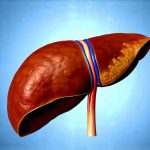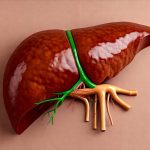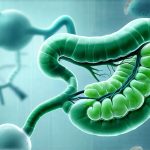The liver is arguably the most versatile organ in the human body, performing over 500 essential functions. It acts as our primary detoxification center, filtering blood, metabolizing nutrients and drugs, producing bile for digestion, and storing glycogen for energy. In today’s world, with increasing exposure to environmental toxins, processed foods, and stress, liver function can become compromised, leading to fatigue, digestive issues, skin problems, and even more serious health concerns. Supporting the natural detoxification processes of the liver is therefore crucial for overall well-being. While a healthy lifestyle – including a balanced diet, regular exercise, and adequate hydration – forms the foundation of liver support, certain herbal supplements can offer additional assistance in optimizing its function.
It’s important to approach herbal supplementation with informed caution. The term “detox” is often misused and misunderstood; it’s not about rapidly eliminating toxins through restrictive diets or aggressive cleansing protocols. Instead, it’s about supporting the liver’s inherent ability to process and eliminate waste products efficiently. Herbal remedies have a long history of use in traditional medicine systems, but they are not without potential side effects or interactions with medications. This article will explore some well-researched herbal supplements known to support liver detoxification processes, emphasizing their mechanisms of action and the importance of consulting with a healthcare professional before incorporating them into your routine. We’ll also highlight responsible usage and potential precautions.
Milk Thistle: The Liver’s Loyal Companion
Milk thistle (Silybum marianum) is perhaps the most well-known herbal supplement for liver health, and for good reason. Its active constituent, silymarin, is a complex mixture of flavonolignans with potent antioxidant and anti-inflammatory properties. Silymarin works on several levels to protect and regenerate liver cells:
- It acts as an antioxidant, neutralizing free radicals that can damage hepatocytes (liver cells).
- It supports the growth of new, healthy liver cells.
- It strengthens cell membranes, making them less vulnerable to toxins.
- Research suggests silymarin may even help prevent acetaminophen toxicity – a common cause of acute liver failure.
The benefits of milk thistle extend beyond simple protection. Studies have shown promising results in individuals with various liver conditions, including alcoholic liver disease, non-alcoholic fatty liver disease (NAFLD), and hepatitis. However, it’s important to note that silymarin has relatively low bioavailability – meaning the body doesn’t absorb much of it directly. Look for formulations containing phosphotidylcholine, which significantly enhances absorption rates. Standardized extracts guaranteeing a specific percentage of silymarin are also preferable.
Artichoke: Bile Production and Liver Function
Artichoke (Cynara scolymus) has long been valued not just as a culinary delight, but also for its medicinal properties, particularly relating to digestive health and liver support. Its benefits stem largely from compounds like cynarin and silymarin (yes, it contains some silymarin too!), which stimulate bile production. Bile is essential for the digestion of fats and the elimination of waste products through the intestines.
A sluggish gallbladder or impaired bile flow can lead to a buildup of toxins in the liver, hindering its detoxification processes. Artichoke extract encourages this natural cleansing process by increasing bile secretion, easing the burden on the liver. Furthermore, artichoke contains antioxidants that help protect liver cells from oxidative stress. Some research indicates it may also assist with lowering cholesterol levels and improving lipid metabolism, contributing to overall liver health. It’s available in several forms, including capsules, tinctures and even as a concentrated extract.
Turmeric: Inflammation & Liver Protection
Turmeric (Curcuma longa) is a vibrant yellow spice widely used in Indian cuisine and traditional Ayurvedic medicine. Its primary active compound, curcumin, possesses remarkable anti-inflammatory and antioxidant properties that benefit the entire body – including the liver. Chronic inflammation can significantly damage liver cells and impair their function. Curcumin helps to combat this inflammation by inhibiting inflammatory pathways.
- Curcumin protects against oxidative stress by neutralizing free radicals.
- It supports glutathione production, a crucial antioxidant in the liver’s detoxification process.
- Some studies suggest curcumin may aid in protecting against liver fibrosis – the scarring of the liver that can lead to cirrhosis.
However, curcumin has poor bioavailability on its own. To enhance absorption, it’s often combined with piperine, an extract from black pepper. Look for formulations containing a standardized amount of curcumin and piperine for optimal results. Liposomal curcumin is another excellent option, as the liposome encapsulation drastically improves absorption rates.
Dandelion Root: Gentle Detoxification Support
Dandelion (Taraxacum officinale) often dismissed as a weed, is actually a powerful medicinal plant with roots deeply embedded in herbal traditions. While its leaves are known for their diuretic properties, it’s the root that offers significant support to liver detoxification. Dandelion root stimulates bile flow – similar to artichoke – aiding in the elimination of toxins and improving digestion.
Unlike some more potent herbal detoxifiers, dandelion root is generally considered gentle on the system, making it a good option for those with sensitive constitutions. It also contains antioxidants that protect liver cells from damage. Dandelion root can be consumed as a tea, tincture, or capsule form. It’s important to note its diuretic effect; stay well-hydrated when using dandelion root supplements.
- Dandelion root supports the liver’s ability to process fats.
- It encourages detoxification through increased bile production and elimination.
- Avoid if you have a known allergy to ragweed or related plants, as cross-reactivity is possible.
Ginger: Aiding Digestion & Liver Support
Ginger (Zingiber officinale) isn’t typically thought of as a liver detoxifier, but its powerful digestive benefits indirectly support liver function. A healthy digestive system is crucial for minimizing the burden on the liver, as it reduces the amount of toxins absorbed into the bloodstream. Ginger aids digestion by:
- Stimulating gastric emptying – moving food through the digestive tract more efficiently.
- Reducing nausea and bloating.
- Improving nutrient absorption.
Ginger also contains antioxidants that can protect liver cells from damage caused by free radicals. Some research suggests ginger may help reduce inflammation in the liver, further contributing to its health. Ginger is incredibly versatile – it can be consumed fresh, dried, as a tea, or in supplement form. It’s generally well-tolerated, but individuals on blood thinners should exercise caution, as ginger has mild anticoagulant properties.
Disclaimer: This article provides information about herbal supplements that may support liver detoxification processes. It is not intended to be a substitute for professional medical advice, diagnosis, or treatment. Always consult with a qualified healthcare provider before starting any new supplement regimen, especially if you have underlying health conditions or are taking medications. Individual results may vary. The use of herbal supplements should always be part of a holistic approach to health that includes a balanced diet, regular exercise, and stress management.


















